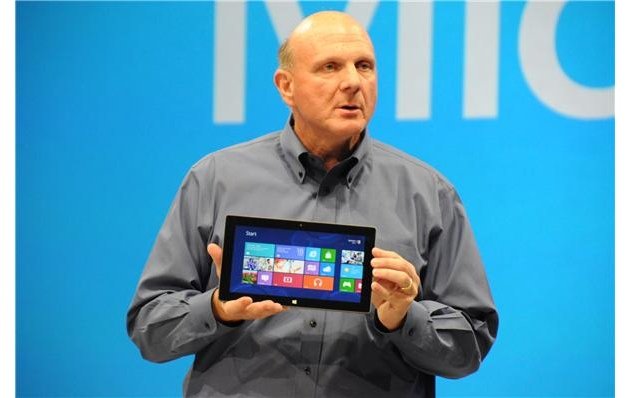Our Surface devices will compete with products made by our OEM partners, which may affect their commitment to our platform.
– “Risk Factors,” Microsoft Form 10-K For The Fiscal Year Ended June 30, 2012
Microsoft CEO Steve Ballmer says the company’s new Surface tablet is a “design point” intended to help its hardware partners, not a brazen play to steal away their customers. “[Surface] will have a distinct place in what’s a broad Windows ecosystem,” Ballmer explained. “And the importance of the thousands of partners that we have that design and produce Windows computers will not diminish.”
That’s a nice reassurance, but Acer CEO JT Wang isn’t buying it for a second. He thinks Microsoft should stick to the software development and leave the business of hardware design to its PC manufacturing partners. And he’s not afraid to say so publicly.
Indeed, in an interview with the Financial Times this week, Wang said he’s called upon Microsoft to reconsider its strategy for Surface, which will see Redmond competing against its longtime hardware partners in the Windows 8 tablet market.
“We have said [to Microsoft] think it over,” Wang told the FT. “Think twice. It will create a huge negative impact for the ecosystem and other brands may take a negative reaction. It is not something you are good at so please think twice.”
Campbell Kan, Acer’s president of PC global operations, was even more brazen in his take on Surface. “If Microsoft is going to [have a] hardware business, what should we do?” he said. “Should we still rely on Microsoft, or should we find other alternatives?”
But aside from making its displeasure over Surface known, what is Acer really going to do about it?
It has built its business on Windows; it can’t exactly abandon it in protest of Microsoft’s decision to enter the tablet market — not without significant financial consequences, anyway. Can’t imagine its established Windows customer base would happily embrace Ubuntu Linux or Chrome.
And, to some extent, Acer really has only itself to blame. JT Wang himself admitted earlier this year that the company has suffered from its decision to sell “cheap and unprofitable products” — precisely the type of devices that inspired Microsoft to develop Surface.
Via: ATD












